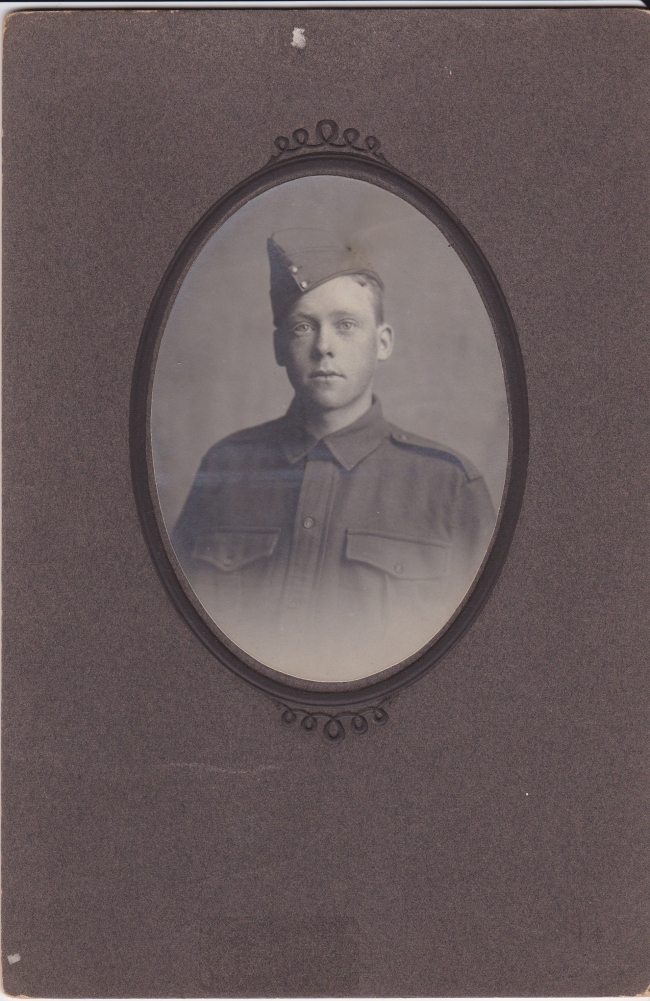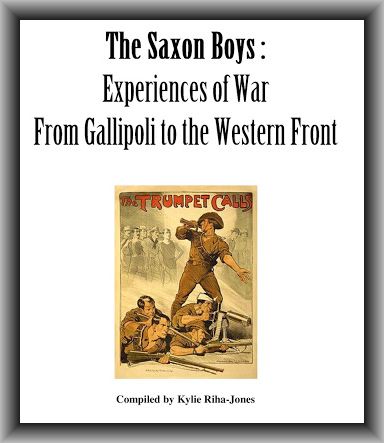Kylie says
"There are over 150 soldiers from the Euroa District cited in this book.
A list is available below or simply click on the pdf book link on Kylie's blog and search the document.
There is also an index at the rear of the book.
Search by Surname as soldiers often are referred to either by nicknames or initials. :)
A
Ernest Anderson (Euroa) SRN: 1111, 10494 -1st BAC/Brigade Headquarters/5thAus.Transport
Arthur Armstrong (Strathbogie) SRN: 1657 -21st Battalion/Trench Mortar Battery
B
Harry Barrett (Euroa) SRN: 2785 -8th Battalion/5th Pioneer Battalion
John Barry (Euroa/Carlton) SRN: 381 -7th Battalion/1st Pioneer Battalion
William Bateman (Donald/Maryborough) SRN: Lieutenant Colonel -21st Battalion/58th Battalion
Bert Beaton (Euroa) SRN: 1742 -8th Battalion
Francis Peter Beaton or Frank Beaton (Euroa) SRN: 3015, 4063, 1776 -22nd Battalion/51stBattalion
William Beaton (Euroa) SRN: 1912 -14th Battalion
William Belcher or Bill Belcher or Will Belcher (Miepoll South/Euroa) SRN: 223 -4th Light Horse Regiment/13th Light Horse
Charles Bell (Euroa) SRN: 755 -6th Machine Gun Company
Lindsay Bell or Lin Bell (Euroa) SRN: 2275 -3rd Pioneer Battalion
Sid Bell (Euroa) (Euroa) SRN: 5654 -8th Battalion
Herbert Bradford or Bert Bradford (Euroa) SRN: 7 -21st Battalion
Esmond Bunting or Es Bunting (Euroa) SRN: 297 -22nd Battalion
Alexander Burton or Alex Burton (Kyneton/Euroa) SRN: 384 -7th Battalion
C
Spencer Carne (Donald/Euroa) SRN: 1503 -24th Battalion
Esmond Carrick or Es Carrick (Euroa/Northcote) SRN: 72 -6th Battalion
Francis Charlton or Frank Charlton (Euroa) SRN: 800 -7th Battalion
Robert Charlton (Euroa) SRN: 4685 -Depot Battalion/21st Battalion
Arthur Clery (Violet Town) SRN: 2845 -2nd Pioneer Battalion
Alf Collins (Stanley/Beechworth/Euroa) SRN: 368 -7th Battalion
Maurice Corbett (Euroa/Melbourne) SRN: 2133 - 21st Battalion
James Cornish (Tungamah/Euroa) SRN: 2133 or 2133A -6th Battalion
Phil Cornish or “Nish” (Tungamah/Euroa) SRN: 76 -22nd Battalion Stretcher Bearer
George Cowell (Euroa) SRN: 183 -14th Battalion/4th Pioneer Battalion
Alex Crisfield (Great Western/Fairfield) SRN: 2531 -3rd Pioneer Battalion
Walter Crisfield (Great Western/Fairfield) SRN: 2350 -2nd Pioneer Battalion
D
Louis Dargatz (Locksley/Euroa) SRN: 530 -6th Battalion
Norman Dargatz (Locksley/Euroa) SRN: 1904 -57th Battalion
William De Boos (Euroa) SRN: 363 -22nd Battalion
Arthur Draper (Euroa) SRN: 4225 -Heavy Battery 4th Division/4th Division Artillary
William Dunlop or Bill Dunlop (Bendigo/Euroa) SRN: 1826 -8th Training Battalion/ 37th Battalion
Ernie Dunn (Shepparton) SRN: 1165 -24th Battalion
William Dunstan (Ballarat) SRN: 2130 -7th Battalion
E
Harold Elliott or “Pompey” (Charlton/Northcote) SRN: Lieutenant Colonel -7th Battalion/15th Brigade
F
Tom Fitzgerald (Euroa) SRN: 22 -7th Headquarters Driver
Jack Footter or John Footter (Boho/Violet Town) SRN: 2174 -21st Battalion
Leslie Ford or Les Ford (Ceres/Euroa) SRN: 5331 -21st Battalion Headquarters Pay Corps
Jack Fothergill (Broadford/Collingwood/Euroa) SRN: 195 -6th Battalion
G
Keith Gardiner (Euroa) SRN: 1683 -5th Battalion
Archie Gascoyne (Euroa) SRN: 155 -22nd Battalion
George Gascoyne or “Bunny” Gascoyne (Euroa) SRN: 1942 -8th Battalion
George Frederick Glover or Ensign Glover (Euroa) SRN: 4112 -5th Pioneer Battalion
Les Grant (Narracan) SRN: 11 -7th Battalion
H
Charlie Hamilton (Albury/Euroa) SRN: 1149 -6th Battery/5th Division Artillery
Max Hanley or “Mac” Hanley (Euroa) SRN: 1008 -22nd Battalion
Maurice Harrison (Euroa) SRN: 1952 -14th Battalion
Tom Hastie (Clifton Hill) SRN: 2nd Lieutenant -Headquarters 2nd Infantry Brigade
Sam Hatty (Beveridge/Timboon) SRN: 279 -4th Light Horse
Harry Hayes (Longwood) SRN: 273 -1st Anzac Regiment/ 13th Light Horse Regiment
Henry Alfred Hayes (Euroa/Strathbogie) SRN: 834 -22nd Battalion
Charlie Hill (Winchelsea) SRN: 4729 -21st Battalion/2nd Division Salvage
Bert Hinton or “Judge” Hinton (Euroa) SRN: 516 -3rd Battalion/55th Battalion
Frank Hinton (Euroa) SRN: 907 -17th Battalion
I
Adolphus Ison or Dolf Ison(Perth) SRN: 2162 -14th Battalion
J
William Jamieson (Kyneton) SRN: 690 -7th Battalion
Arthur Johnston (Euroa/Balwyn) SRN: 600 -14th Battalion
Fred Johnston (Euroa) SRN: 598 -14th Battalion – Bugler
Robert Johnston or Bob Johnston (Euroa/Perth) SRN: 313 -28th Battalion -CQMS
William Johnston (Euroa) SRN: 10871 -Headquarters 3rd Division
Thomas Jones (Warrandyte/Longwood) SRN: 13 -7th Battalion Headquarters
K
Harold Kennedy (Euroa) SRN: 810 -7th Battalion
Ernie Kerslake (Euroa) SRN: 2026A -26th Battalion
Fred Kiellerup (Narrandera) SRN: 1047 -6th Battalion
Herbert Kong Meng (Melbourne/Longwood) SRN: 21 - Headquarters Light Horse
L
Joe Lavery (Euroa) SRN: 1742 -2nd Pioneer Battalion
James Leonard or Jim Leonard (Euroa) SRN: 393 -7th Battalion
Leo Leonard (Euroa) SRN: 900 -21st Battalion
Michael Leonard (Euroa/Fitzroy) SRN: 3083 -6th Battalion/58th Battalion
Tom Leonard (Richmond/Euroa) SRN: 172 -23rd Battalion/62nd Battalion
Edward Lewis or Eddie Lewis (Euroa) SRN: 1535 -24thBattalion
John Lewis or “Doc” Lewis (Sydney/Euroa) SRN: 5705 -7th Battalion
Tom Liddell (Euroa) SRN: 769 -23rd Battalion
Harold Locke (Euroa/Violet Town) SRN: 2nd Lieutenant -Cyclist
George Lydiard (Balmattum/Euroa) SRN: Lieutenant -13th Light Horse/ 5th Division Cavalry
M
Tom Mackrell (Nanaweeu) SRN: 662 -24th Battalion
Thomas Maher or Tom Maher (Euroa) SRN: 2921 -7th Battalion
William Maher (Avenel/Euroa) SRN: 2917 -7th Battalion
Gordon Maxfield (Longwood) SRN: 2nd Lieutenant -21st Battalion
Leslie Maygar (England/Longwood) SRN: Captain -4th or 8th Light Horse
Charles McCombe (Euroa) SRN: 189 -23rdBattalion/65th Battalion
Russell McCombe (Euroa) SRN: 190 -22ndBattalion or 23rd Battalion
George McCoombe (Euroa/Violet Town) SRN: 5058 -24th Battalion
Joseph McEntee (Beechworth/Euroa) SRN: 2103 -37th Battalion
Francis McFarlane (Violet Town) SRN: 1988 -7th Battalion C Co
William McGregor or Bill McGregor (Wangaratta) SRN: 1535 or 1535a -24th Battalion
Jack McIvor or John McIvor (Macorna) SRN: 1150 & 1568 -22nd Battalion/65th Battalion
George McLeod (Euroa) SRN: 2861 -PioneerBattalion
William McNay (Unknown) SRN: 1076 -6th Battalion Driver
Archie Morgan (Euroa) SRN: 370 -7th Battalion
Arthur Morgan (Euroa) SRN: 225 -21st Battalion
Bert Morgan (Euroa) SRN: 2037 -22nd Battalion
William J.P. Morgan (Euroa) SRN: 893 -14th Battalion -Bugler
Stanley Muir (Elsternwick) SRN: 152 -4th Light Horse/68th Flying Squad
N
William Nowotna or Bill Nowotna (Dunkeld/Euroa) SRN: 567 - 13th Light Horse
O
John O'Connor (Melbourne) SRN:875 -22nd Battalion
David Owen (Benalla) SRN: 320 -4th Light Horse
P
Arthur Parker (Ballarat/Euroa) SRN: 294 & 9748 -Hospital Transport Corps/ 13th Field Ambulance
William Pezet or Will Pezet or Bill Pezet (Euroa/Bacchus Marsh) SRN: 403 -7th Battalion -Driver
Peter Pinder (Ireland/Gooram) SRN: 16 -7th Battalion Headquarters
Joe Power (Euroa) SRN: 609 -8th Light Horse
Hugh Prowd or Hughie Prowd (Bonnie Doon/Euroa) SRN 5808 -7th Battalion
R
Alexander Ramage (Violet Town) SRN: 5075 -24th Battalion
Edward Ramage (Violet Town) SRN: 701 -24th Battalion - Driver
Reg Ramage (Violet Town) SRN: 5076 -24th Battalion
Bill Rea (Boho/Queenscliff) SRN: 341 -7th Battalion - Signaller
Lindsay Cyril Reid (Deniliquin/Fitzroy) SRN: 989 -7th Battalion
Albert Riddle (Girgaree East/Euroa) SRN: 1637 -Naval & Military Expeditionary Force
S
Charlie Sanderson (Violet Town) SRN: 742 -4th Light Horse/4th Machine Gun Squadron
William Sargood or Bill Sargood (Euroa/Goorem) SRN: 4769 -24th Battalion
Bertie Saxon or Bert Saxon (Euroa/Violet Town) SRN: 2708 -2nd Pioneer Battalion
Francis Saxon (Brunswick/Euroa) SRN: 2384 -22nd Battalion
Joseph Saxon or Joe Saxon (Euroa) SRN: 1564 -22nd Battalion
William Saxon or Bill Saxon or “Shinner” Saxon (Euroa) SRN: 694 -7th Battalion - Stretcher Bearer
Thomas Saxon or Tom Saxon or “Sack” (Euroa/Violet Town) SRN: 485 -21st Battalion
Herb Sephton (Carlton) SRN: 1188 -7th Battalion
Ernie Sheppard (Euroa) SRN: 2273 & 1556 -24th Battalion
George Slow (England/Rutherglen) SRN: 960 -7th Battalion – Stretcher Bearer
Jack Stevenson or John Stevenson (Violet Town) SRN: 2260 -21st Battalion
James Stevenson (Violet Town) SRN: 341 -4th Light Horse/2nd ANZAC Light Horse
Joe Stevenson (Violet Town/Boho) SRN: 2258 -21st Battalion
Ralph Stevenson (Violet Town) SRN: 907 -22nd Battalion
William Stevenson (Violet Town) SRN: 342 -4th Light Horse
T
Eric Thewlis or Rick Thewlis (Locksley/Euroa) SRN: 69-13th Light Horse/1st ANZAC Army Corp
Frank Tubb (Longwood) SRN: 8 -7th Battalion -Transport - Special Forces
Frederick Tubb or Fred Tubb (Longwood) SRN: Lieutenant -7th Battalion Headquarters
Brian Turner or “Buster” Turner (Euroa) SRN: 3283 -24th Battalion
Theophilus Twomey or Ted Twomey (Euroa) SRN: 2701 -26th Battalion
U
Jack Underwood or John Underwood (Violet Town) SRN: 356 -4th Light Horse
W
Dave Wakenshaw (Balmattum/Euroa) SRN: 1041 & 2030B -8th Light Horse/4th Division Artillery
Phil Wale (Benalla) SRN: 1040 -7th Battalion
Albert Wall or Bert Wall (Gowangardie/Violet Town/Molka) SRN: 269 -22nd Battalion
John Wall (Violet Town/Molka) SRN: 270 -22nd Battalion
Roger Wall (Gowangardie/Violet Town/Molka) SRN: 271 -22nd Battalion
Harold Weatherhead or “Long-un” (Camperdown/Euroa) SRN: 303 -7th Battalion – Stretcher Bearer/Anzac Provisional Corp
Jack Weatherhead (Allansford) SRN: 298 -8th Light Horse
Jim Webb or James Webb (Dunnolly/Euroa) SRN: 359 -4th Light Horse
Louis Webb (Mooroopna/Rheola) SRN: 1610 -6th Battalion
George Whitechurch (Avenel) SRN: 645 -4th Light Horse
William Whitechurch (Avenel/Seymour) SRN: 2254 -8th Battalion
Clarence Wignell (Euroa) SRN: 20 -7th Battalion
Everard Wignell (Euroa) SRN: 19 -7th Battalion
Jack Wiltshire or John Wiltshire (Longwood/Caldermeade) SRN: 866 -23rd Battalion
Roy Wiltshire or Aubery Wiltshire (Longwood/Armadale) SRN: 2nd Lieutenan -22ndBattalion
Jack Wynn or John Wynn (Scotland/Euroa) SRN: 1501 & 1630 -22nd Battalion"





















